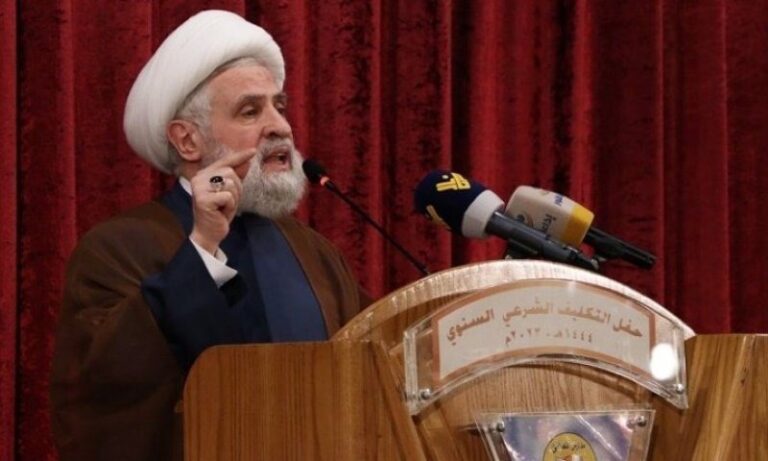 Health Minister (Yesh Atid) Yael German announced on Wednesday, 27 Sivan 5774 that after about a year of deliberation and meetings, the committee she headed has decided private “Sharap” (שר”פ – שרות רפואה פרטי) medical care would not be offered in the nation’s public hospitals.
Health Minister (Yesh Atid) Yael German announced on Wednesday, 27 Sivan 5774 that after about a year of deliberation and meetings, the committee she headed has decided private “Sharap” (שר”פ – שרות רפואה פרטי) medical care would not be offered in the nation’s public hospitals.
German is a supporter of the Sharap service and during the months of meetings she tried to persuade her colleagues to vote in favor of the option, a move she feel would improve the nation’s healthcare as well as shorten waiting lines for appointments with experts.
However the committee decided against it for it believes it is better for the masses to place more of the health care burden on the government instead of the private citizen.
Globes reports that “supporters of private medicine included German herself; Penina Koren, the former head of her office in the Herzliya Municipality; National Economic Council chairman Prof. Eugene Kandel; health economist Prof. Jacob (Kobi) Glazer; Ministry of Health director general Prof. Arnon Afek; and Israel Medical Association Secretary General Leah Wapner. Opponents included former Ministry of Health deputy director general Prof. Gabi Bin-Nun, Prof. Leah Achdut from the Ruppin Academy, Ministry of Finance deputy budgets director Moshe Bar Siman Tov, and Adv. Adi Niv-Yaguda, a specialist in medical law”.
If the Sharap plan would have been approved, it would have permitted choosing a specialist in a public hospital, which would also result in a shorter waiting period. Sharap is paid for by the patient, who may or may not have additional healthcare insurance to cover it. For example, a private visit today in Hadassah Hospital with a senior specialist under Sharap costs 1,150 NIS. Kupat Cholim Maccabi will reimburse a patient if s/he sees a senior physician whose name appears on the approved list in the amount of 80% or 616 shekels, whichever is lower.
Opponents feel that the top doctors are taking private patients during the hours they should be seeing HMO patients and therefore, those unable to pay for private medical care are left out in the cold with substandard care and long lines for an appointment or procedure.
In line with its decision, the committee has recommended to the national government to add 1 billion NIS to the annual health budget. The committee explains that if senior physicians in public hospitals will no longer have the Sharap option to boost their income, they will look for a position outside of Israel and the top doctors will be lost. To avoid this, the committee is calling for the budgetary increase which will be used in part to significantly raise the monthly salaries of senior physicians, which it believes should range from 60,000-100,000 NIS without having to see private patients. It is hoped this will encourage the physicians to agree to give up their private practice.
It should be pointed out that Sharap patients are not seen in a physician’s private office, but in the hospital complex, on the hospital’s time and resources.
Other points included in the committee’s decision include:
1. One will be permitted to select between 1 of 3 hospitals
2. 1 billion NIS will be infused into the healthcare system to shorten lines and improve the infrastructure of the public clinics and public pharmaceutical basket
3. Private care for tourists will continue but with a ceiling and stricter monitoring
4. Supplemental healthcare plans via a kupat cholim (HMO) will be eliminated with one will be offered other options and plans separately
5. A computerized system will assist residents in ascertaining if they have duplicate policies of needless policies
(YWN – Israel Desk, Jerusalem)











3 Responses
This is long overdue. Doctors have been making fortunes by using the resources of the public hospitals, funded by the public for the public’s benefit – for their own personal gain.
The doctors visit is a often a precursor to surgery. Seeing a top specialist for diagnosis but Getting a mediocre surgeon for surgery is not a good solution for the patient. The committee at least in this news report didn’t address giving access to the top surgeons.
this is not as smart as it looks. It is well known that in the israeli health care system is substandard due to the government run kupat cholim. There is no incentive for a doctor to spend time and effort on a patient if he is getting paid the same anyway.
This sharap system (which is not that overly expensive) offered patients the ability to meet with a doctor who DID have an incentive to treat them nicely (i.e. so that they would return and pay him again.) The answers and information that were received and the just plain and simple “time” that was saved by the expedited sharap system was very much welcomed by many patients who were confused by conflicting reports they had already received by other uncaring doctors or (as witnessed by anyone who ever was in the sharap waiting room) by many of the elderly or people in painful or uncomfortable situations who couldn’t deal with the long (sometimes 10 hour!) wait times.
This will be very sorely missed, (and that i have written comes from experience)